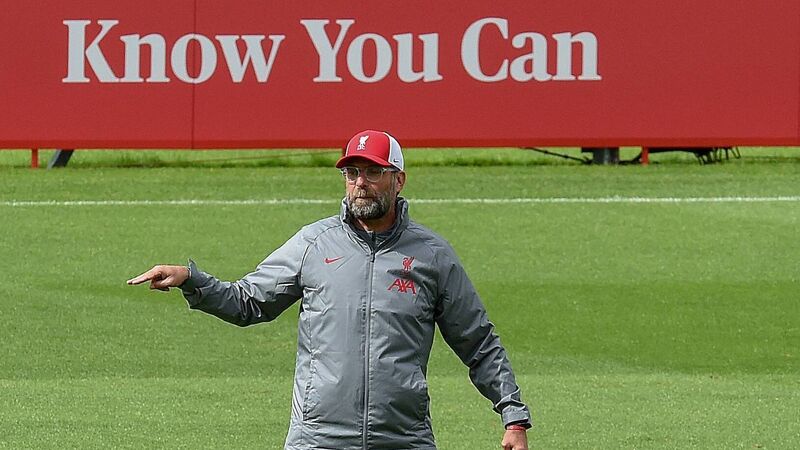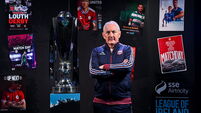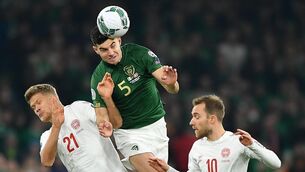Larry Ryan: Liverpool are better built for a world after perfection

Jurgen Klopp takes training at Melwood Training Ground. Picture: John Powell/Liverpool FC via Getty Images
We know that Liverpool lost last season’s title race by eight ‘expected points’. Though the sticklers for detail will tell you that they also won it by 18 actual points.
Somewhere in that 26-point swing might lie evidence that Jurgen Klopp overachieved wildly and the whole charade is about to unravel.









